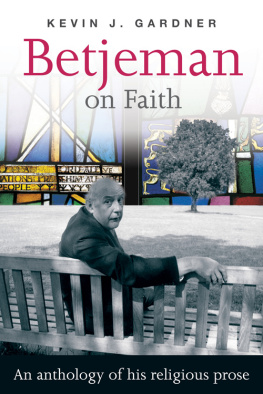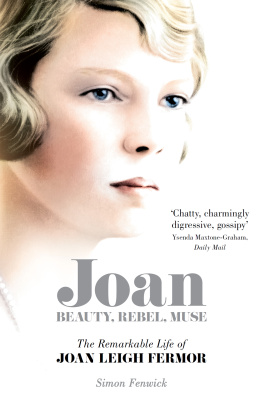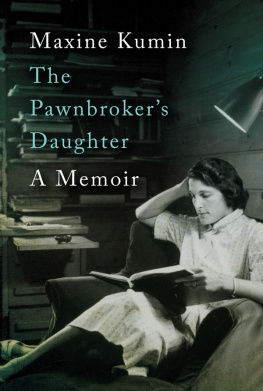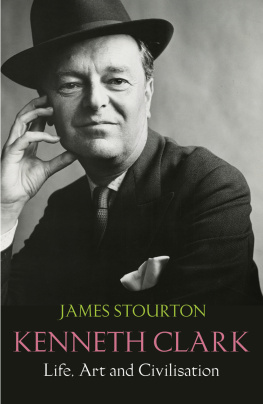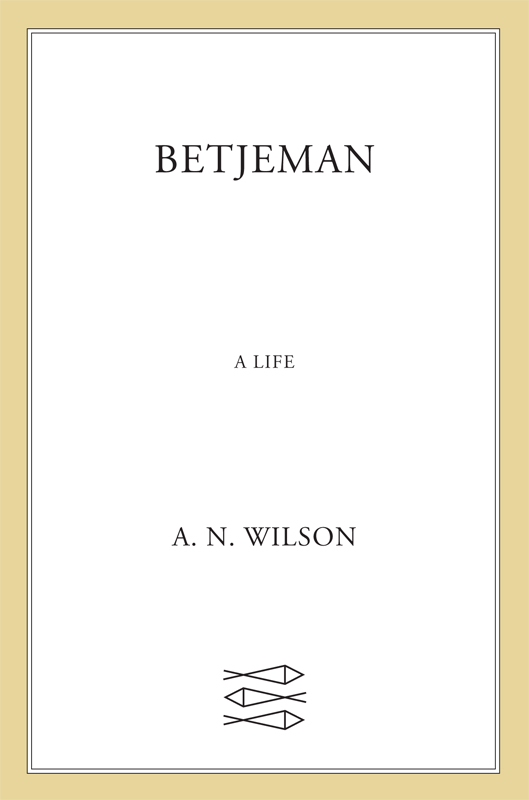Contents
Guide

The author and publisher have provided this e-book to you for your personal use only. You may not make this e-book publicly available in any way. Copyright infringement is against the law. If you believe the copy of this e-book you are reading infringes on the authors copyright, please notify the publisher at: us.macmillanusa.com/piracy.
Contents
To Paul and Candida
Bright as the morning sea those early days!
The fashionable Kings Road, Chelsea, on a Sunday morning in the 1980s was quiet. The shoppers who had milled about in their thousands during Saturday afternoon had returned to different parts of town, and the revellers of the previous evening, in clubs and restaurants and bars, were sleeping off their excesses. Dog-walkers or churchgoers were about. Such as these might have seen, as a regular occurrence on Sunday mornings, a large black car pull up in Radnor Walk, a small street off Kings Road. Out of it would step a small woman in her early fifties, with auburn, almost bronzed hair in the perm-helmet fashion which had become obsolete twenty years before. She would ring a door-bell. From a tiny artisans terraced cottage, built to house the workers at the Chelsea Pottery in the nineteenth century but now, in the late twentieth, occupied by the rich, there emerged a six-foot tall, aristocratic lady with a girlish face and springy, greying, short-cropped hair, struggling to help a stout, elderly man who by now needed the assistance of a wheelchair to make even rudimentary street walks. After getting him out of the front door and into the wheelchair, the three of them would process out of Radnor Walk, and down the Kings Road, where only a few hours before, clubbers and young people out for a good time had staggered towards their mini-cabs. In one of his best poems, the man in the wheelchair had imagined a bleary-eyed nightclub proprietress coming into the club the next day and seeing the brimming ashtrays and unwashed glasses. But Im dying now and done for, she exclaims. What on earth was all the fun for?
All three in the little procession had in their different ways enjoyed life, though with the limitations of their office or class in society. The man in the wheelchair, who had recently wowed television audiences by complaining that he had not had enough sex in his life, was the Poet Laureate. His tall, willowy minder, lover and friend was Elizabeth Cavendish, sister of the Duke of Devonshire, a magistrate, and someone who had become his life-companion. The third party, known to the man in the wheelchair as Little Friend, was the Queen of Englands sister, Princess Margaret. Before the onset of Parkinsons disease, the man in the wheelchair, with his tall companion, Lady Elizabeth Cavendish, and her Little Friend, had attended another church, the Grosvenor Chapel in Mayfair, but for the time being, Holy Trinity, Sloane Street, a church which could be reached on foot from Radnor Walk, was their destination.
Ever since a Chelsea boyhood, the man in the wheelchair, the Poet Laureate, had been aware of this church, designed by J. D. Sedding and built in 188890. Its Arts and Crafts architecture had fascinated and delighted him. Before his thirtieth birthday he had written a poem about it, and some time before his seventieth birthday he had found himself, together with, to use his own phrase, that excellent artist Gavin Stamp, campaigning for the salvation of this church from demolition. It was one of the hundreds of beautiful buildings which, during that vandalistic period of English history, the poet had campaigned to save. Now in the premature old age which Parkinsons disease had inflicted upon him, he seized eagerly upon this place both as a church which was within reach of his home, and as somewhere which adhered to the Book of Common Prayer another bit of the past which the British seemed intent upon throwing heedlessly away.
John Betjeman, the man in the wheelchair, being pushed along by his lover, Lady Elizabeth Cavendish and her friend Princess Margaret (Cavendish was her lady-in-waiting), is the subject of the book which follows.
Although the medical diagnosis of his condition was that he had been suffering since he was sixty-five from Parkinsons disease, anyone seeing his face in the latter days could feel that more than simple disease had battered it. Because of his frequent television appearances in the previous thirty years, it had become one of the best-known faces in England round, chubby, wistful, often lit up by a completely enchanting laugh, revealing appalling teeth. But the large eyes, as well as being humorous, were also full of fear. He was a depressive, who all his life had lived on cycles of mood swings from elation, when he loved clowning and showing off, to deep melancholy and self-doubt. Like many melancholics, he was of a very religious temperament. The churchgoing was no mere outward form; it was his bedrock and strength. But churchgoing did not prevent appalling consciousness of his own inadequacies, a morbid near-revelling in sin, and a deep, almost total doubt.
I hang on to faith by my eyelids, a lot of the time I think it is all rot.
The morbid guilt was deeply increased by the fact that this national icon, and pillar of the Church, was living apart from his wife, and by the fact that he was effectually estranged from his elder child, Paul. Both things preyed on his mind, and at times endangered sanity itself, driving out all capacity for happiness.
Such was the wish of the nation to make him an entirely jolly figure the tiresome clich the nations teddy bear was even applied to him that no one really wanted to dwell on his private life. The public at large preferred the public image. In August 1974, the Daily Express had published an insinuating article alongside a photograph of Betjeman and the house in Radnor Walk Old friend Lady Elizabeth comforts Betjeman. On television, his wife Penelope gave an interview in which she spoke very firmly as if they were still married which, canonically and legally, they were. Both of them believed they were, and he loved his wife to the end.
The great thing about John, Lady Betjeman told the television audiences in her surprisingly cockney, albeit upper-class cockney, tones, is that he gets over rows very quickly, and my technique has usually been to pay no attention to him when he gets in a passion and that annoys him all the more. So on the whole its probably better if I do have a bit of a row. I think we have less rows than we used to when we married.
She neglected to mention that one possible reason for this was that they no longer lived together.
I did not like all the probing and prying in the Express , Betjeman wrote to her. I felt very sorry for you, what business is it of theirs, fuck them.
As long ago as 1964, John Osborne, then perhaps the most celebrated playwright in England, had written a play which everyone in the know recognised to be about Betjeman. I have always been afraid of being found out, says the hero of Inadmissible Evidence Bill Maitland, who is a married man with two children, two women (the mistress called Liz) and a furious obsession with the architectural wreckage of England.
When Betjeman said that he was afraid of being found out, he was not, of course, simply referring to his private life, which was an open secret among all his friends and a wider public. (Maurice Bowra, his old mentor from Oxford days, upon hearing that Betjemans son Paul had become a Mormon, crisply commented, Excellent thing, excellent thing, Paul a Mormon, a Mormon. It combines the religious fervour of the mother and the polygamous tendencies of the father.)


